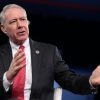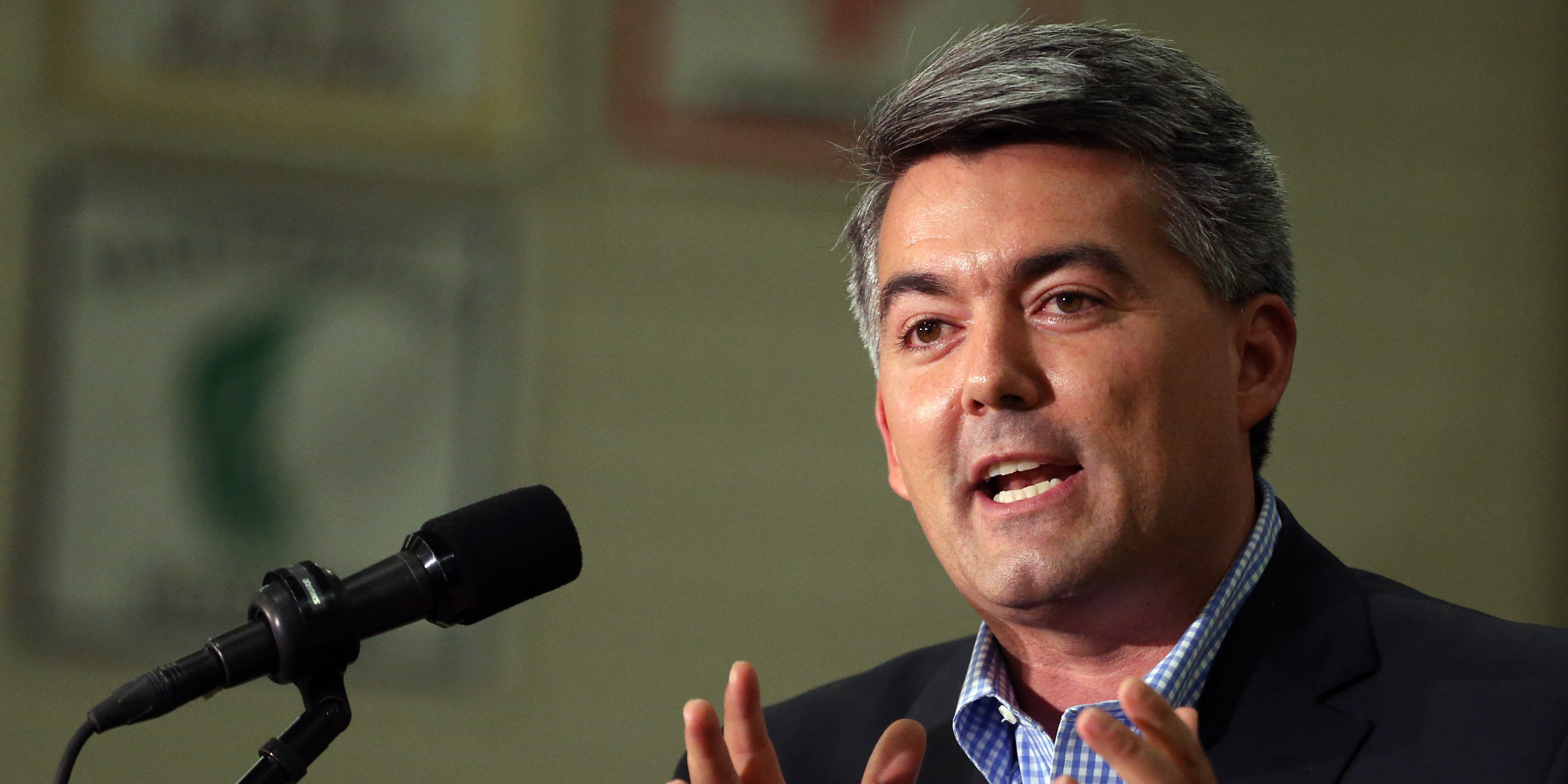U.S. Sen. Cory Gardner (R-CO), who’s currently deciding whether he supports Trump’s national-emergency declaration, once opposed an Obama action because Gardner thought it represented an unacceptable abuse of power by the president.
Gardner voted to block Obama’s 2014 DACA initiative protecting “Dreamers” from deportation.
Gardner said at the time that he voted against Obama’s DACA program because he wanted “to condemn the President’s circumvention of Congress,” but he still wanted to find a solution for the Dreamers, who’ve been brought to the U.S. as children and know no other country, besides America, as home.
Fox 31 Denver’s Eli Stokols reported in 2014:
Gardner immediately released a statement following the vote [against DACA], explaining that he opposes the president’s unilateral action but not comprehensive immigration reform overall.
“Recently, the President issued an executive order that circumvented Congress and asserted power he previously said he doesn’t have,” Gardner said in the statement. “Today the House voted on a bill to condemn the President’s circumvention of Congress.
So today, Gardner favors building a border wall, and may support extreme presidential action to get it done. In 2014, Gardner said he supported the Dreamers but opposed Obama’s DACA executive order to get it done.
A call to Gardner’s office seeking to know why he saw DACA as an unacceptable circumvention of Congress, while he doesn’t necessarily see Trump’s emergency declaration the same way, was not returned.
What’s the difference between Obama’s executive action on DACA and Trump’s emergency?
In short, Obama’s move was well within bounds set by previous presidents, while Trump’s national emergency goes beyond anything seen in America. It’s not known if it’s legal, but it’s an outlier in terms of asserting presidential power.
Despite the hullabaloo from Gardner and other conservatives, Obama’s DACA initiative was in line with what Presidents H.W. Bush and Reagan had done–and it fell broadly in line with presidential power on immigration policy.
That’s why Politifact concluded that it was “mostly true” that Reagan and H.W. Bush issued actions similar to Obama’s DACA policy. Politifact reported:
Both [Reagan’s and H.W. Bush’s policies] are examples of a president wielding his power not to apply U.S. immigration law in cases where he deems this necessary or appropriate, said David Shirk, a fellow at the Woodrow Wilson International Center for Scholars.
Using executive authority this way is not so unusual among modern presidents. As Kenneth R. Mayer, a political scientist at the University of Wisconsin-Madison, told us in a previous fact-check, “Presidents going back to at least Reagan have made unilateral adjustments to immigration law — adding exemptions, extending protection to classes not covered by existing statutes such as children and spouses, making discretionary decisions about what constitutes ‘unlawful presence’ or what categories of people here illegally will be the focus of enforcement action.”
Though Obama’s DACA policy is still in legal limbo, it has not been overturned and the subset of Dreamers covered by it are still protected from deportation.
Trump’s national-emergency declaration is different, in part because it is usurping congressional power (spending money to build a wall) in direct response to being denied power (money for the wall) by Congress. As the Washington Post reported Feb. 16:
Presidents have taken extraordinary steps before, at times invoking crises facing the United States. Abraham Lincoln suspended the writ of habeas corpus during the Civil War in 1861, making it easier to arrest someone without bringing the individual before a judge.
President Harry Truman tried to nationalize the steel industry in the 1950s amid tensions brought by the Korean War; he was rebuked by the Supreme Court.
Presidential scholars said Trump’s move on Friday, though extreme in its rhetoric, will be viewed much differently, even if he attempts to use the National Emergencies Act of 1976 to buttress his case. That’s because Trump isn’t responding to a crisis that’s evident to the American people but is instead taking action after Congress rejected his funding request for the past two years.
“It shrinks the importance of Congress even more,” said Douglas Brinkley, a presidential historian. “It is a wild-eyed imperial presidency.”
It’s not clear whether Trump’s declaration will ultimately be found unconstitutional, in part because the president has yet to specify which laws justify his action. And he could take a number of legal paths.
But it is clear that Trump’s action is a bold assertion of presidential power that should raise the eyebrows of someone like Gardner who’s opposed less brazen presidential actions like DACA.
Trump declared a national emergency Feb. 15 after signing a bill allowing continued operation of the federal government–but without funds requested by Trump for a border wall.
It’s hard to know what Gardner will ultimately decide.
His supporters, like former Colorado GOP leader Dick Wadhams, have pointed out that, when push comes to shove, Gardner votes with Trump on taxes, deregulation, foreign policy, and more. Gardner voted with Trump three times to kill Obamacare.
But Gardner’s opponents think he’s a weasel, and counter that he could be shifting back to the center, despite his 91 percent pro-Trump voting record, as he prepares to defend his seat in 2020. He was one of the first Republican U.S. senators to support re-opening the government last month–without providing funding for Trump’s border wall.
Gardner first said he opposed Trump’s state-of-emergency, telling Colorado Public Radio’s Ryan Warner Thursday that he told Trump directly Congress should fund the wall.
Warner: How do you get the message to him that you don’t want him to perhaps declare a national emergency, as has been hinted? Or, raid other funds for this. How does —
Gardner: Well, it’s pretty simple. I’d tell him that in person, that I think Congress needs to do its job.
Warner: Have you done, that? And do you —
Gardner: I have.
Gardner opposed the national emergency in an appearance on KOA radio as well.
Then Gardner issued a statement saying he was still undecided on the national emergency.
“I’m currently reviewing the authorities the Administration is using to declare a national emergency,” stated Gardner.
This led CPR’s Warner to tweet that he’d “been contrasting Gardner’s comments to me Thursday that President Trump shouldn’t do anything w/o Congress’ approval with Gardner’s statement a day later — after the emergency declaration. I’m interested to know where he lands.”




